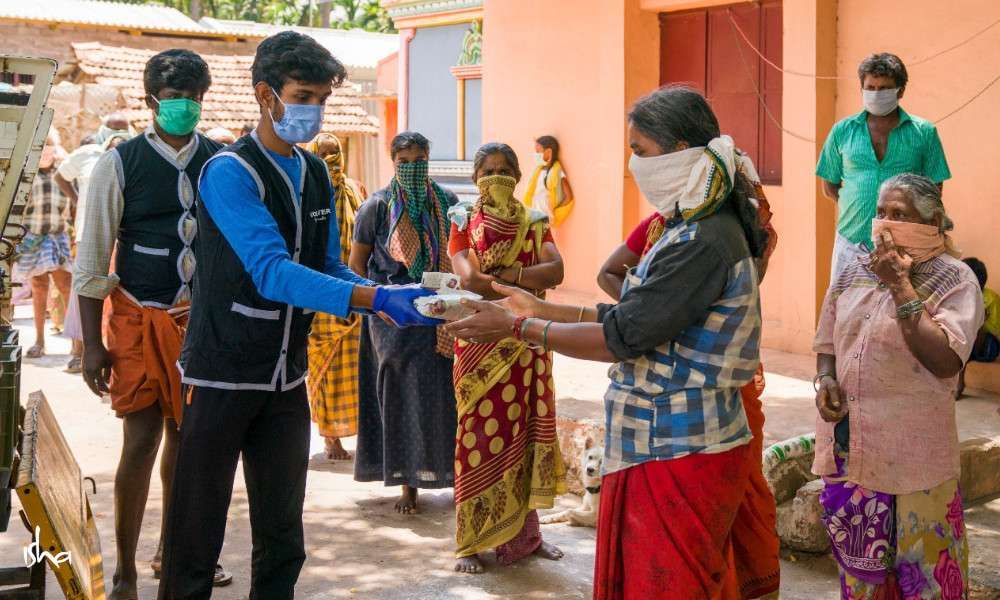Coronavirus - How to Help the Poor During the Crisis
The coronavirus pandemic is poised to hurt migrant laborers and daily wage workers who constitute India’s poorest section of society. We must step forward as a society to support them, without risking becoming carriers of the infection ourselves.

As citizens of this nation, let us open our eyes and look around for people around us who could go into starvation mode. We must see how to reach out, either by our own capabilities or bring somebody else's attention to it, and arrange at least basic nourishment for them in the next two weeks. We must commit ourselves that we will not allow starvation to be the basis of suffering and deaths. This is our responsibility. We have enough trouble with the coronavirus; let us not cause more trouble to ourselves.
Subscribe
The Plight of Migrant Workers
Till now, rural India has not had much presence of coronavirus. However, the migrant workers who come from villages in rural India to work in major cities have become desperate to go back to their homes. It is largely the male population which comes like this. They usually have a small piece of land in the village which the women tend to while they are out for six-to-eight months working in a city. But now they know that there is no work, that there is a risk to life and they do not know what is happening to their families. The government is doing everything possible to set up hostels for them, food arrangements, but they just want to go back home. There has been an exodus from cities to villages. It is understandable how they feel about it, but unfortunately they could take the virus from the city to rural India. I hope they have not taken a large amount of infection to rural areas and this passes off well.
How Isha Foundation is Contributing
With this extended lockdown, the number of people who will become vulnerable and helpless will increase significantly. Many of our young volunteers are stepping out into villages and seeing what to do. They are leaving the Yoga Center, which means that they will not be able to come back till everything is over. And when they do come back, they will go into anywhere between fourteen to twenty-eight days of quarantine. So it is a self-exile. They are taking this step to serve the rural society around us. We bow down to their commitment.
Our volunteers in the region are serving cooked meals. We can postpone everything, but we cannot postpone our lunch and dinner. We may not be able to provide them what they would normally eat, but we are seeing how to provide at least two meals a day. For this the procurement of the necessary physical infrastructure, human infrastructure and groceries and vegetables is happening on a war footing.
Also, our Chinese volunteers have sent medical aid in terms of masks, gloves, some safety suits for medical personnel and others. But the biggest challenge is going to be to provide pharmaceutical medicines that may become necessary on a large scale.
The financial pressure on us will go on increasing. Many people have contributed in a big way and supported us. We look forward to a continued support because this is not going to be over very soon.
Editor’s Note: If someone is moving towards starvation, and you are unable to offer help, please call the Isha helpline at 83000 83000 which will activate Isha volunteers in the local area to provide additional support. Join us in our mission to protect vulnerable groups. Donate at http://ishaoutreach.org/beatthevirus.



